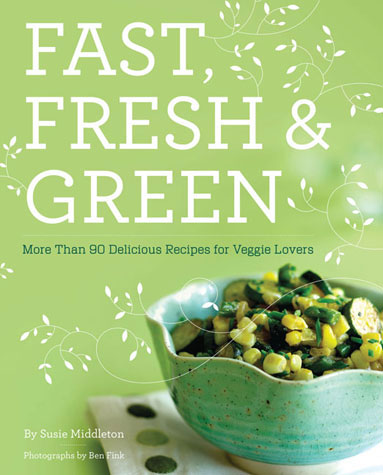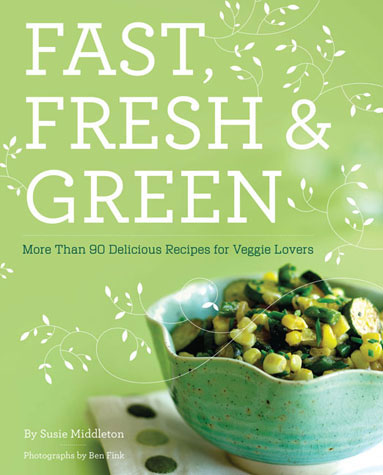 Like recycling, listening to NPR, and caring about the World Cup, everyday cooking has become a de rigeur activity for those with certain class and cultural aspirations.
Like recycling, listening to NPR, and caring about the World Cup, everyday cooking has become a de rigeur activity for those with certain class and cultural aspirations.
And that’s as it should be. We need more home cooks. If diversified, human-scale, community-directed farms are going to thrive, then a much broader swath of the population has to know how to turn raw ingredients into dinner — and do it regularly.
But home cooking has been in decline for at least a couple of generations. For most young to middle-aged adults, childhood food memories center on takeout, heat-and-serve microwave fare, and perhaps the occasional fancy meals for birthdays and holidays.
If you’re an adult who didn’t learn the basics of everyday cooking at the parental knee, how to do it at this late date? One way — the path I took — is through cookbooks. Until pretty recently, the most interesting cookbooks that emerged from publishing houses involved what might be called “weekend” or “special occasion” meals: they had you scrambling for rarified ingredients and, quite often, spending hours constructing a single dish.
As a way to learn to cook, it was lots of fun, but also ad hoc and time-devouring. What about people who want to gain kitchen chops, but aren’t willing to spend most of their free time frying each ingredient individually for a classic Mexican mole, fixing a broken béarnaise, or tackling the vast pile of dirty pots and pans that such projects create? What about people who just want to put a nice dinner on the table after working all day Tuesday, with ingredients they picked up at the farmers market Saturday?
Unshackled from the magazine grind, Middleton has delivered a terrific cookbook, particularly for those in the steep part of cooking’s endless learning curve.
At least since World War II, there has never been a shortage of cookbooks promising “quick & easy” recipes, many of them with the word “microwave” in the title. But these books were mainly about minimizing cooking — throwing together various convenience foods for a fast meal. Starting about a decade ago, there have emerged excellent, rigorous cookbooks focusing on everyday fare for the casual cook.
Deborah Madison, with her Vegetarian Cooking for Everyone, and Mark Bittman, with his Minimalist books and his How to Cook Everything magnum opus, are the beacons of this new wave of home cooking: time-conscious, technique-oriented, and green-minded (meat, when it isn’t dispensed with altogether, plays a supporting role to dishes centered on fresh produce and whole grains).
But even if Madison and Bittman dominate this section of the cookbook shelf, I’ll still be making room for Suzie Middleton’s new book, Fast, Fresh, & Green. For years, Middleton served as the editor of the excellent Fine Cooking magazine, which deftly combines high-ambition, “master”-level recipes with everyday food. Unshackled from the magazine grind, Middleton has delivered a terrific cookbook, particularly for those in the steep part of cooking’s endless learning curve.
Experienced cooks might be put off by the book’s stated premise. Explaining her method, Middleton writes: “So, my weeknight vegetable improvisation goes like this: 1) I pick my cooking method. 2) I pick my vegetables. 3) I pick my flavorings. 4) I start chopping.”
I can’t imagine thinking like that. I start with what’s on hand or ready in the garden. If I’m shopping for produce, I buy what looks most appealing — and then I start thinking about cooking methods and flavor palates. I suspect most experienced, seasonal-minded cooks think in similar ways.
But you know what? Experienced cooks should forget the book’s premise and just dig into the recipes. Got a bunch of asparagus on hand? Consult the index and alight upon “Quick-braised Asparagus with Dijon, White Wine, and Fresh Thyme Pan Sauce.” I tried it a few weeks ago, and the result was pretty terrific: rustic, pungent, and bright all at once. And even if you don’t have all the ingredients on hand, the technique — brown the asparagus in butter, and then braise it lightly in a flavorful liquid — is inspiring. It broke me out of the asparagus rut in which I’ve languished for oh, 10 years now, in which I either roast or steam it, serving it with aioli. Many other such fresh ideas abound in the book.
Where I think it will really gain traction is among new cooks. Its chapters are based not on ingredients or courses, but rather on techniques: “quick-roasting,” “quick-braising,” “hands-on sauteing,” “walk-away sauteing,” and so on. Each of the nine chapters that form the meat of the book contains a brisk explanation explaining how the technique works, followed by a “foundation recipe” for putting into action. Then come a dozen or so variations on the main theme, all unfussy and manageable for an evening in the middle of a busy week.
Any aspiring cook would be well advised to work through the “foundation recipes” chapter by chapter. In contrast to the exacting doyennes under whose cookbook tutelage I labored under in the ‘90s — I’m thinking of you Marcella Hazen, Diana Kennedy, and Paula Wolfert, my heroes–Middleton’s voice is gentle, encouraging, and geared to making cooks feel empowered to improvise.
That’s critical. I doubt if many people can sustain a run of casual everyday cooking without feeling good about improvising. Only on so many Tuesdays will hardworking people consent to slogging through a recipe to get dinner on the table. After a certain point, weighed down by exhaustion from the day’s labor and the prospect of dirty dishes to come, you either gain the ability to size up a set of ingredients and think through their pathway to a meal — or you revert to takeout and heat-and-serve.
With her new book, Middleton has emerged as an appealing shepherd, capable of guiding people from the ruins of bad convenience fare to the splendor of confident, quotidian cooking. And she has more than a few tricks to teach us old kitchen dogs, too.



